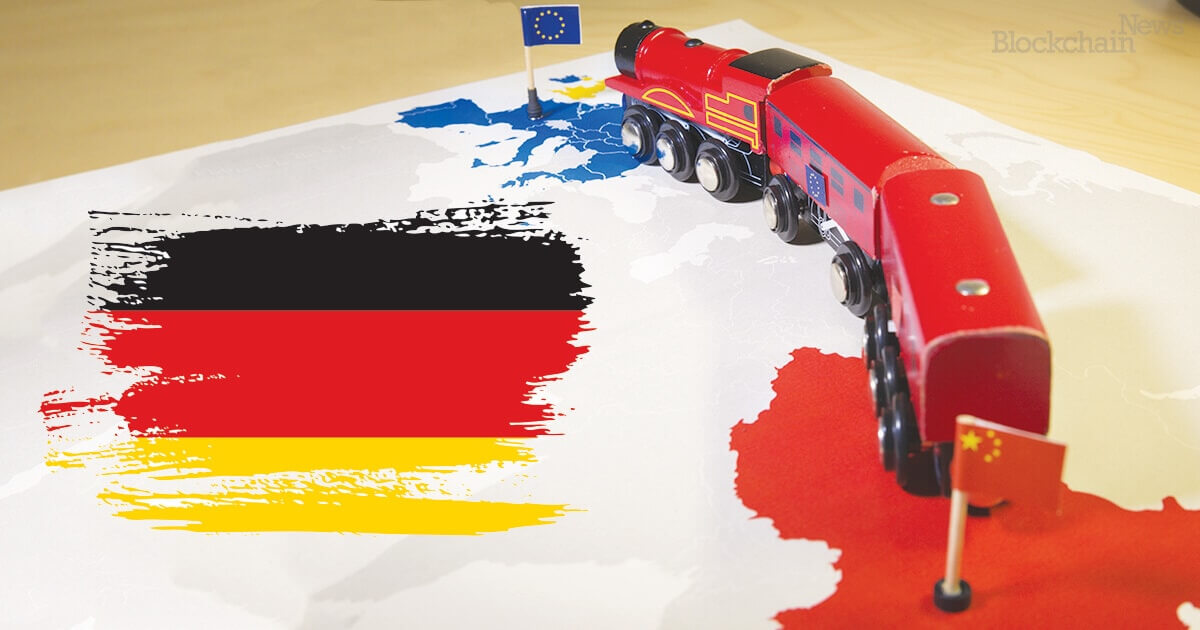Fintech in Belt and Road - the Bavarian Benefits
Matthew Lam Oct 01, 2019 02:00
Belt and Road Initiative—Germany

Belt and Road Initiative—Germany
In May 2019, the Munich-based German think tank—Ifo Institute published a study highlighting that the China-proposed Belt and Road Initiative (BRI) can help Bavarian companies enter new markets and ease access to raw materials.
The study indicates that through the BRI, trade between Germany’s Bavaria and China is expected to increase by nearly ten percent with exports to China anticipated to grow by 2.2 billion euros. Additionally, the study reports that exports from Bavaria to the transit countries in Central Asia could increase by around 53 million euros.
Bavaria to Chengdu
The Nuremberg Chamber of Commerce and Industry is one of the largest councils in Germany—located in the state of Bavaria, a southern region of Germany. Armin Siegert, Head of Department for International Economic Affairs of the Nuremberg Chamber of Commerce and Industry in Asia describes the region as a “Powerhouse—home to captains of industry such as BMW, Siemens, and FC Munich. In the Nuremberg chamber, we manage and oversee a lot of the international activities of the state and one of our main focus points currently is the Belt and Road Initiative.”
Siegert spends much of his time fostering interest and encouraging big industry to invest in the BRI. He said, “In our view, this is one of the biggest projects for the future and in Nuremberg, we already have a direct rail link to Chengdu in the Sichuan Province of China—so we are already part of the BRI infrastructure.”
Nuremberg Belt and Road Summit
Siegert first visited the Hong Kong Trade and Development Council’s (HKTDC) Belt and Road Summit in 2017. Drawing inspiration for the 5000-strong event, Siegert organized the first Belt and Road Congress in Nuremberg in 2018 with plans to continue the event annually. He said, “Our first congress attracted around 300 participants, a fraction of the attendance of the HKTDC, but still a huge success. We expect around 500 participants this year.”
The goal of the Nuremberg Belt and Road Congress is to shine a light on the BRI for major industry players in Europe. Siegert explained, “We are bringing the message to the European companies, we want to expose the business potential of the initiative and say—take a look at what is happening in Asia and China. New money, new infrastructure, airports, roads, etc. For example, China is investing a lot of money in Central Asian countries such as Kazakhstan, so we will also go to Kazakhstan to find potential partners for our companies to participate in the Belt and Road projects.”
In light of recent global macro-economic uncertainties, such as the US-China trade war and Brexit, Siegert believes that the Belt and Road Initiative has come at the right time. He said, “Brexit is a big problem for the European Union and also for our companies in the Nuremberg area, we have 800 companies doing business with Great Britain, and they are of course affected. On top, we have challenges such as the trade tension between the US and China and other countries that have a lot of protectionisms built into their regulation.” He continued, “The Belt and Road offers new opportunities in Asia and the connectivity of the initiative will help to solve many problems and generate new business.”
New opportunities for Nuremberg extend beyond just China and they currently have projects underway with members of the ASEAN countries. Siegert offered an example, “We are in cooperation with the Thai Board of Investment on the Eastern Economic Corridor—a huge project which will transform the corridor and surrounding provinces into a hub for technological manufacturing and connectivity to its ASEAN neighbors by land, sea, and air. We have solicited a lot of interest and engagement from German companies into this venture. We are in similar development cooperation’s with Malaysia and most of the ASEAN countries”.
Image via ShutterstockImage source: Shutterstock
.jpg)